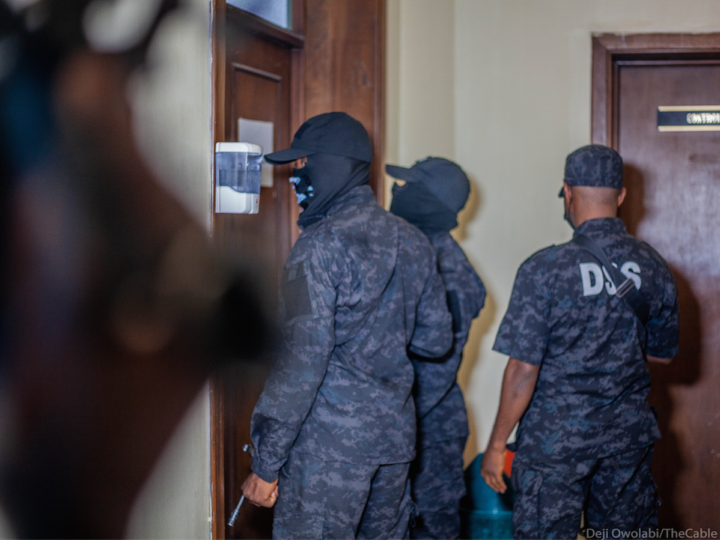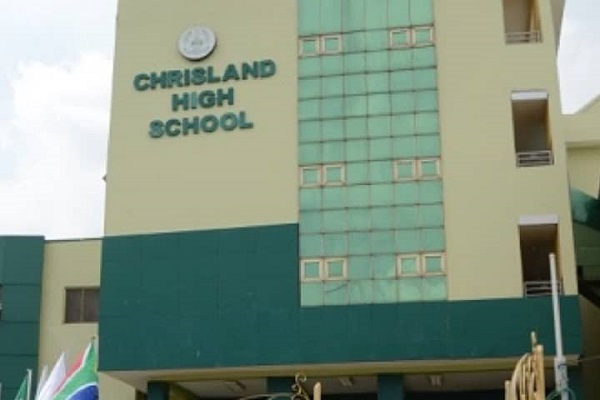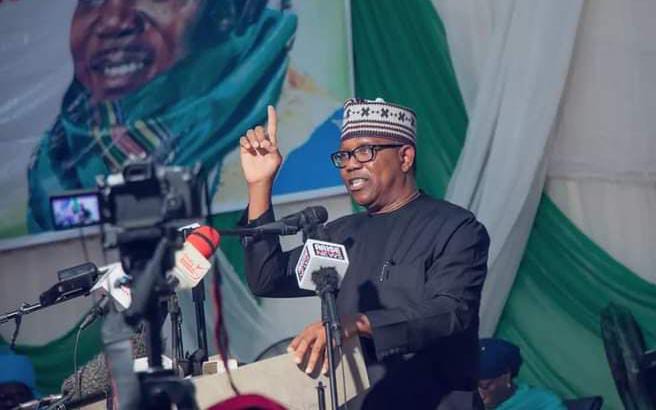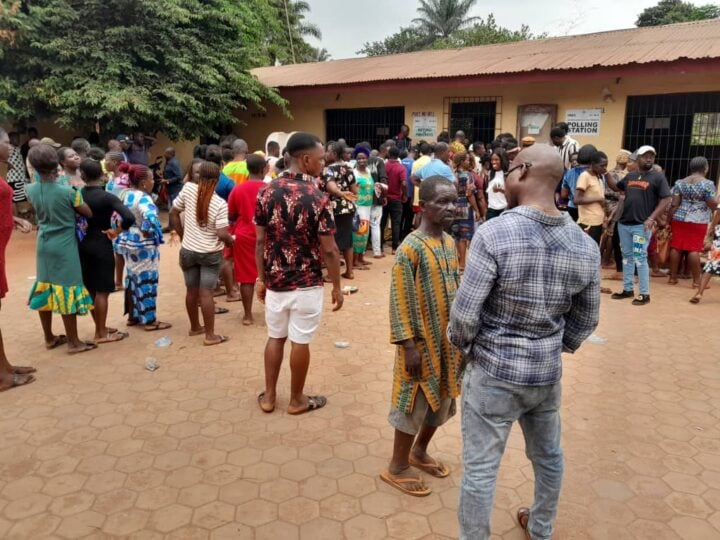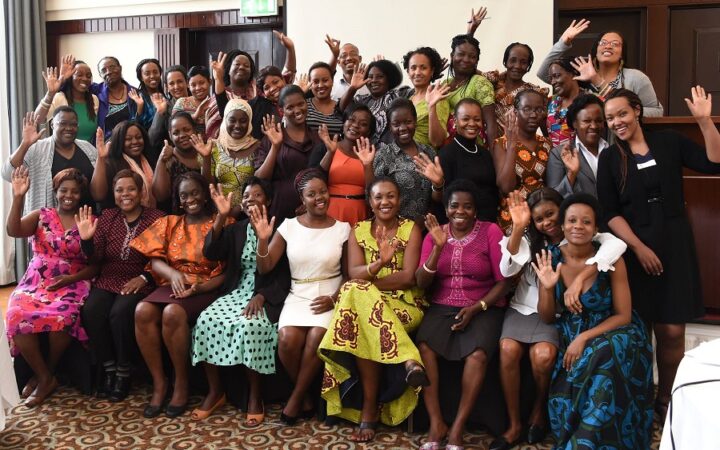BY WEALTH DICKSON OMINABO
Nigeria’s secret police, the Department of State Services (DSS), on Wednesday, March 29, alarmed Nigerians that it was privy to plans by some politicians to undermine the nation’s democracy. A statement by the agency’s spokesman Peter Afunaya said that some non-state actors have been devising means to halt the inauguration of President-elect Bola Ahmed Tinubu to install an interim government. The statement explained that some persons had been zealously strategising for ways to introduce extra-constitutional means of government following a ‘peaceful election’ which was keenly contested. The organisation assured Nigeria that it would resist any attempt to put Nigeria into a political crisis that would jeopardise Africa’s biggest democracy.
The agency said the planners have been holding different meetings to achieve their motive. According to the DSS, these groups’ strategies include “endless violent mass protests in major cities to warrant a declaration of state of emergency. Another is to obtain frivolous court injunctions to forestall the inauguration of new executive administrations and legislative houses at the federal and state levels”.
This is not the first time that the rumour about the truncation of Nigeria’s democracy will be on the front burner in Nigeria’s political discourse. Two weeks before the presidential election, the military had to issue a statement to disclaim a rumour that it was planning a coup. The military asked Nigerians to disregard the report that the military was interested in capturing the political and civic space. Brigadier Tukur Gusau, the spokesman for the military, in his disclaimer, said the “Armed Forces of Nigeria is a professional military that is loyal to the constitution of the Federal Republic and will never be part of any evil plot against our democracy…the military remains apolitical and neutral in the current political process and will not engage in the alleged shenanigans”.
Advertisement
In recent years, West Africa has experienced a wave of military coups, with countries like Guinea, Mali, and Burkina Faso now governed by military strong men drawing the curtains of many years of democratic progress in the sub-region. It is worth mentioning that most of the coups in these nations came after post-election disenchantment by citizens. In this context, Nigerians should be worried about any threat to the sustenance of Nigeria’s democracy and condemn every evil plan aimed at truncating democracy in whatever guise or provocation.
However, many Nigerians see the DSS action as a political script targeted at opposition groups who have expressed anger at the election’s outcome. They say the agency is acting on the directive of the All Progressives Congress and its presidential campaign council, which has been very uncomfortable with the public statements and conduct of the opposition figures, especially the Labour Party, on the election’s outcome. The perception is that the DSS is responding to the demand of the ruling party to contain the freedom of opposition leaders following their anger in the aftermath of the disputed presidential election that is being challenged in court.
It could be recalled that recently, minister of state for labour and spokesman for the All Progressive Congress presidential campaign council, Festus Keyamo, wrote to the DSS demanding the arrest and prosecution of Peter Obi and Datti Baba-Ahmed for refusing to toe a “conciliatory path for the sake of peace and national cohesion, whilst exercising their rights to pursue duly laid-down constitutional means of addressing their grievances”. Two days after the petition, DSS responded with a news statement with the headline: “DSS Alerts of Planned Violent Action; Warns Against Desperation to Ignite Violence in the Country” and four days later, it released another statement with the headline: “DSS Confirms Plot for interim Government by Misguided Political Actors.”
Advertisement
Deconstructing DSS Statements
The statement of the DSS is a departure from the expected or standard rhetoric of professional security institutions like the DSS. The tone and tenor of the news release sounded too alarmist, with an undertone of political propaganda laced with a rhythm of conjecture. The assertion that people were planning to sponsor violent protests to declare a state of emergency sounds outlandish. The power of declaring a state of emergency lies with the president and the national assembly. So, if there were verifiable intelligence on the imminent threat to Nigeria’s democracy, the expectation would have been to send a security brief to the appropriate quarters or apprehend those involved in the plan, given that DSS is known to be very covert in its operations. The fact that DSS will link protest to a plot of a coup is worrisome, given that protests and marches have now become part of Nigeria’s civic activities. This is even more surprising given that there has been a group protesting in Abuja, marking the countdown for the inauguration of the president-elect. The feeling in some quarters is that the recent statements by DSS are a ploy to intimidate and tame opposition voices from their persistent quest for democratic redress.
The logic in this assumption can be deciphered from the context of the service’s hasty conclusion that the last election was peaceful. Nigerians can recall that the same DSS has in the recent past attempted to intimidate other arms of government when they laid a siege on the national assembly and invaded houses of serving justices. Actions like these are within the remit of state capture. This is why Nigerians must interrogate the actions of state actors and insist on professionalism when they exercise their responsibilities.
The Fog of Hope
Advertisement
Nigeria is at a crossroads, and there is a fog of hope across the land. Many are disillusioned following the economic and social malaise around the country. The nation hangs on the balance, swinging in the air of uncertainty. The scarcity of naira, fuel, and justice has formed a fog of hope around the country. This has resulted in anger, depression, and frustration in many hearts. This moment, therefore, calls for introspection, statesmanship, and a display of professionalism in the exercise of statecraft. Government agencies should exercise constraint and desist from actions that will make citizens lose their fate on the capacity of the state to guarantee justice and hope.
Nigeria is in a post-election moment, and as expected, many will feel disappointed by the outcome of the result. They should be allowed to exercise their rights to expression within the ambit of the law. Nigeria needs healing at this point. State institutions must not posture themselves as partisan institutions desperate to do the bidding of political groups.
As the nation approaches another political transition, the priority of the government, its agencies, and those who prepare to lead the country should be to restore love in the hearts of angry citizens, plant trees of justice in public institutions, water the land with hope, this will germinate trust across the land. This is the route to peace, unity, and love.
Ominabo is the communications officer at the Goodluck Jonathan Foundation. He can be reached via [email protected]
Advertisement
Views expressed by contributors are strictly personal and not of TheCable.
Add a comment
